My name is Joshkin Sezer. I am a history major who is starting his third year at the University of Minnesota – Twin Cities. In the Spring Semester of 2015, I enrolled in History of the Holocaust, instructed by Adam Blackler. Near the end of the semester, we got the chance to hear a talk from a Holocaust survivor, Irene Berman. She had just published a book detailing her experience as a child in Norway during the Holocaust and how her family managed to survive.
In July, I had the privilege of presenting at the International Association of Genocide Scholars‘ twelfth meeting in Yerevan, Armenia. The conference’s theme of comparative analysis of twentieth century genocides brought experts from around the world to Armenia’s capital city for five days of presentations, learning, and networking. More than 180 attendees, representing more than two dozen countries, shared their research and insight into many of the twentieth century’s most infamous atrocities. more...
A Good Place to Hide: How One French Village Saved Thousands of Lives During World War II
By Peter Grose
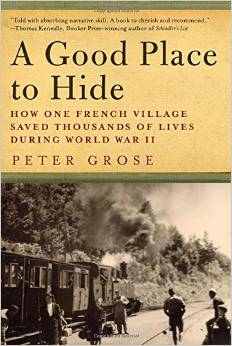
A Good Place to Hide is the story of an isolated community in south-central France, Le Chambon, that conspired to save the lives of 3,500 Jews under the noses of the Germans and the soldiers of Vichy France. It is the story of a pacifist Protestant pastor who broke laws and defied orders to protect the lives of total strangers. Powerful and richly told, the book speaks to the courage of ordinary people who offered sanctuary, kindness, solidarity and hospitality to people in desperate need, knowing full well the consequences to themselves.
On April 23-25 the Center for Holocaust and Genocide studies, along with the Human Rights Program, Institute for Global Studies and the Ohanessian Chair, marked the centennial of the Armenian Genocide of 1915 with a series of events. This included a keynote by Middle East scholar Bedross Der Matossian, an international student conference titled “One Hundred Years of Genocide: Remembrance, Education, Prevention”, a teacher workshop on World War I and the Armenian Genocide, as well as a guided tour of Bdote, a sacred Dakota site at Ft. Snelling State Park led by Professor Iyekiyapiwin Darlene St. Clair.
The Center for Holocaust and Genocide Studies and the Department of History are pleased to announce the 2015-2016 Bernard and Fern Badzin Fellow in Holocaust and Genocide Studies.
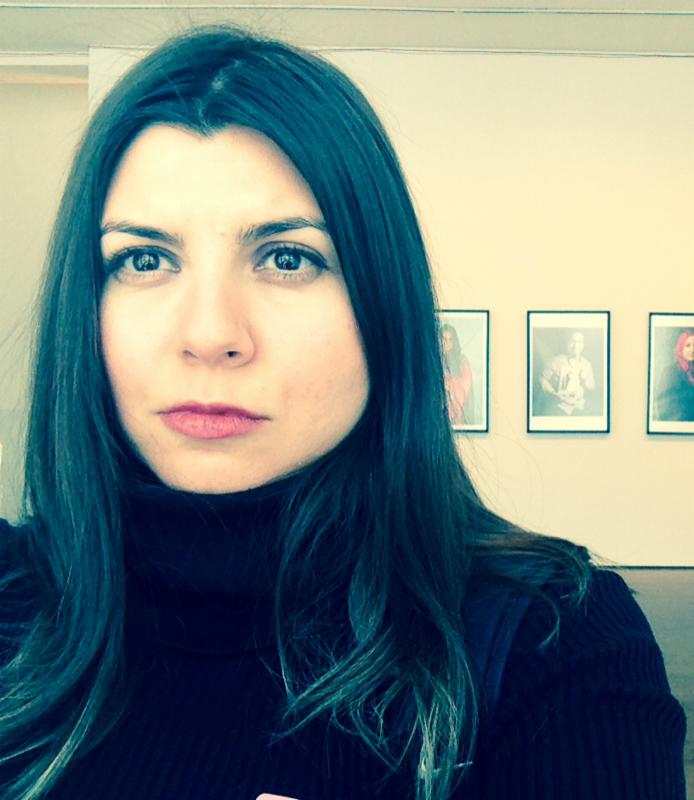 Yagmur Karakaya is a PhD student in Sociology at the University of Minnesota. She is interested in collective memory, popular culture and narratives of history. Yagmur is currently working on her dissertation project on Ottomania, which focuses on contemporary interest in the Ottoman past in Turkey. She is interested in how different groups of minorities engage with the ways in which Ottoman past is recalled and how they situate themselves in this narrative. During her Badzin Graduate Fellowship year, she will focus on the commemoration of the Holocaust in Turkey, and the relative silence on the Armenian genocide situating both of these phenomena in the current political interest in the Ottoman past. This project will engage with current debates regarding memorialization and denial in the field of Holocaust and genocide studies within the context of Turkey. She will be focusing on two major non-Muslim minorities in Turkey: the Jewish and Armenian population, conducting interviews with the members.
Yagmur Karakaya is a PhD student in Sociology at the University of Minnesota. She is interested in collective memory, popular culture and narratives of history. Yagmur is currently working on her dissertation project on Ottomania, which focuses on contemporary interest in the Ottoman past in Turkey. She is interested in how different groups of minorities engage with the ways in which Ottoman past is recalled and how they situate themselves in this narrative. During her Badzin Graduate Fellowship year, she will focus on the commemoration of the Holocaust in Turkey, and the relative silence on the Armenian genocide situating both of these phenomena in the current political interest in the Ottoman past. This project will engage with current debates regarding memorialization and denial in the field of Holocaust and genocide studies within the context of Turkey. She will be focusing on two major non-Muslim minorities in Turkey: the Jewish and Armenian population, conducting interviews with the members.
Archiving the Unspeakable: Silence, Memory, and the Photographic Record in Cambodia
By Michelle Caswell
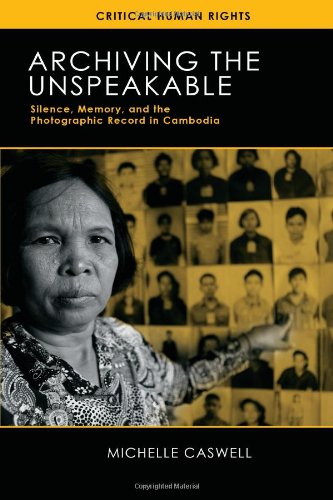 Roughly 1.7 million people died in Cambodia from untreated disease, starvation, and execution during the Khmer Rouge reign of less than four years in the late 1970s. The regime’s brutality has come to be symbolized by the multitude of black-and-white mug shots of prisoners taken at the notorious Tuol Sleng prison, where thousands of “enemies of the state” were tortured before being sent to the Killing Fields. In Archiving the Unspeakable, Michelle Caswell traces the social life of these photographic records through the lens of archival studies and elucidates how, paradoxically, they have become agents of silence and witnessing, human rights and injustice as they are deployed at various moments in time and space. From their creation as Khmer Rouge administrative records to their transformation beginning in 1979 into museum displays, archival collections, and databases, the mug shots are key components in an ongoing drama of unimaginable human suffering.
Roughly 1.7 million people died in Cambodia from untreated disease, starvation, and execution during the Khmer Rouge reign of less than four years in the late 1970s. The regime’s brutality has come to be symbolized by the multitude of black-and-white mug shots of prisoners taken at the notorious Tuol Sleng prison, where thousands of “enemies of the state” were tortured before being sent to the Killing Fields. In Archiving the Unspeakable, Michelle Caswell traces the social life of these photographic records through the lens of archival studies and elucidates how, paradoxically, they have become agents of silence and witnessing, human rights and injustice as they are deployed at various moments in time and space. From their creation as Khmer Rouge administrative records to their transformation beginning in 1979 into museum displays, archival collections, and databases, the mug shots are key components in an ongoing drama of unimaginable human suffering.
Holocaust Archaeologies: Approaches and Future Directions
Caroline Sturdy Colls
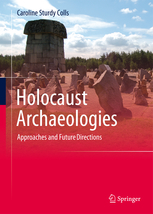 Holocaust Archaeologies: Approaches and Future Directions aims to move archaeological research concerning the Holocaust forward through a discussion of the variety of the political, social, ethical and religious issues that surround investigations of this period and by considering how to address them. It considers the various reasons why archaeological investigations may take place and what issues will be brought to bear when fieldwork is suggested. It presents an interdisciplinary methodology in order to demonstrate how archaeology can (uniquely) contribute to the history of this period. Case examples are used throughout the book in order to contextualize prevalent themes and a variety of geographically and typologically diverse sites throughout Europe are discussed. This book challenges many of the widely held perceptions concerning the Holocaust, including the idea that it was solely an Eastern European phenomena centered on Auschwitz and the belief that other sites connected to it were largely destroyed or are well-known. The typologically, temporally and spatial diverse body of physical evidence pertaining to this period is presented and future possibilities for investigation of it are discussed. Finally, the volume concludes by discussing issues relating to the “re-presentation” of the Holocaust and the impact of this on commemoration, heritage management and education. This discussion is a timely one as we enter an age without survivors and questions are raised about how to educate future generations about these events in their absence.
Holocaust Archaeologies: Approaches and Future Directions aims to move archaeological research concerning the Holocaust forward through a discussion of the variety of the political, social, ethical and religious issues that surround investigations of this period and by considering how to address them. It considers the various reasons why archaeological investigations may take place and what issues will be brought to bear when fieldwork is suggested. It presents an interdisciplinary methodology in order to demonstrate how archaeology can (uniquely) contribute to the history of this period. Case examples are used throughout the book in order to contextualize prevalent themes and a variety of geographically and typologically diverse sites throughout Europe are discussed. This book challenges many of the widely held perceptions concerning the Holocaust, including the idea that it was solely an Eastern European phenomena centered on Auschwitz and the belief that other sites connected to it were largely destroyed or are well-known. The typologically, temporally and spatial diverse body of physical evidence pertaining to this period is presented and future possibilities for investigation of it are discussed. Finally, the volume concludes by discussing issues relating to the “re-presentation” of the Holocaust and the impact of this on commemoration, heritage management and education. This discussion is a timely one as we enter an age without survivors and questions are raised about how to educate future generations about these events in their absence.
Talking to a journalist in Nairobi this weekend, he mentioned something that I thought was as unnerving as it was interesting. The journalist lamented at the fact that it seemed the world had gotten so tired of Darfur that the news of soldiers raping at least 221 women and girls in the village of Tabit last October hardly caused a ripple. The first allegations of the 36-hour rape ordeal came in November when Radio Dabanga (The Hague) initially reported on the crimes. In December, the ICC prosecutor decided to shelve the war crimes probe after almost five years of stagnation by the world court, stating she needed more support to address Sudan’s lack of cooperation, and that the rape of the 200 women and girls in the village “should shock [the] council into action.” Sudanese security forces killed approximately 200 protesters in 2014 and the Sudanese state has been so confident that nothing would happen to it, it created a new force, the Rapid Support Forces, which was accused of having burned 3,000 villages in 2014.
We have come a long way from events that sought to raise awareness such as ‘Rock for Darfur’ (which according to Voice of America had 22 concert in 2006 alone), a long way from buying, and proudly donning, t-shirts 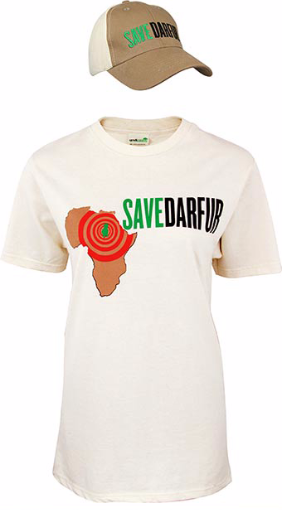 with ‘Save Darfur’ emblazoned on them. Syria, Iraq, Liberia, South Sudan, and Central Africa Republic have overtaken Darfur in the attention sweepstakes in the news. In previous posts I have talked about Compassion Fatigue and the four horsemen of the apocalypse whenever atrocities were covered in the media. However, when is it ok to say enough is enough? When do we, as global citizens, stop shaking our heads and going “tsk tsk, it is so sad what is happening in that country”? These are questions I have asked myself over the past few years. As a graduate student, I have often wondered if my keeping an eye on Darfur is influenced by the fact that my research is in the region. Would it matter as much if my research was on, say, farming practices in Africa? I would like to think it would, if for no reason other than the fact that my country (Kenya) shares a border with South Sudan. I would like to think that whenever I opened the local daily at a coffee shop, or on my way to work in the morning, I would read the news about Darfur and seek out like-minded individuals to try and help in some way, shape or form. What form of help this would be I’m not sure as of yet. So to the question, what have I done for Darfur lately? My honest answer is not as much as I would have liked to do. As Darfur has morphed into a conflict occurring in the shadows (a dreadful prospect) my sense of hopelessness has also increased. What will your answer be?
with ‘Save Darfur’ emblazoned on them. Syria, Iraq, Liberia, South Sudan, and Central Africa Republic have overtaken Darfur in the attention sweepstakes in the news. In previous posts I have talked about Compassion Fatigue and the four horsemen of the apocalypse whenever atrocities were covered in the media. However, when is it ok to say enough is enough? When do we, as global citizens, stop shaking our heads and going “tsk tsk, it is so sad what is happening in that country”? These are questions I have asked myself over the past few years. As a graduate student, I have often wondered if my keeping an eye on Darfur is influenced by the fact that my research is in the region. Would it matter as much if my research was on, say, farming practices in Africa? I would like to think it would, if for no reason other than the fact that my country (Kenya) shares a border with South Sudan. I would like to think that whenever I opened the local daily at a coffee shop, or on my way to work in the morning, I would read the news about Darfur and seek out like-minded individuals to try and help in some way, shape or form. What form of help this would be I’m not sure as of yet. So to the question, what have I done for Darfur lately? My honest answer is not as much as I would have liked to do. As Darfur has morphed into a conflict occurring in the shadows (a dreadful prospect) my sense of hopelessness has also increased. What will your answer be?
Wahutu Siguru is the 2013 Badzin Fellow in Holocaust and Genocide Studies and PhD candidate in the Sociology department at the University of Minnesota. Siguru’s research interests are in the Sociology of Media, Genocide, Mass Violence and Atrocities (specifically on issues of representation of conflicts in Africa such as Darfur and Rwanda), Collective Memory, and perhaps somewhat tangentially Democracy and Development in Africa.
Event Review: International Symposium “Reframing Mass Violence: Social Memories and Human Rights in Post-Communist Europe”
(IAS Collaborative)
March 4-6, 2015
An international symposium on “Contested Past, Contested Present: Social Memories and Human Rights in Post-Communist Europe” took place at the University of Minnesota, Twin Cities on March 4-6. It was organized by the IAS Collaborative “Reframing Mass Violence”, and sponsored by the Human Rights Program and the Center for Holocaust and Genocide Studies, among other supporters.
The Dark Heart of Hitler’s Europe: Nazi Rule in Poland Under the General Government
by Martin Winstone
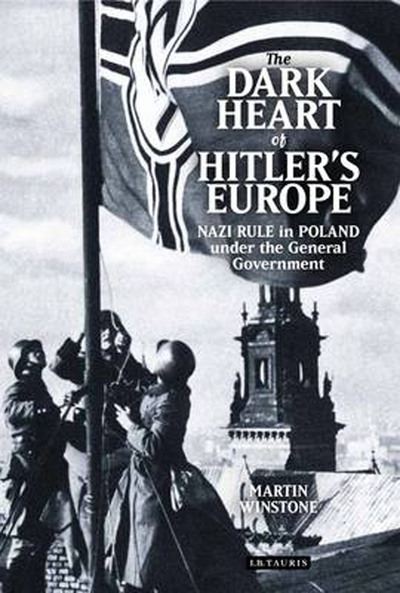 Even amidst the horrors of Nazi rule in Europe, the tragic history of the General Government – the Nazi colony created out of the historic core of Poland, including Warsaw and Krakow, following the German and Soviet invasion of 1939 – stands out. Separate from but ruled by Germany through a brutal and corrupt regime headed by the vain and callous Hans Frank, this was indeed the dark heart of Hitler’s empire. As the principal ‘racial laboratory’ of the Third Reich, the General Government was the site of Aktion Reinhard, the largest killing operation of the Holocaust, and of a campaign of terror and ethnic cleansing against Poles which was intended to be a template for the rest of eastern Europe.
Even amidst the horrors of Nazi rule in Europe, the tragic history of the General Government – the Nazi colony created out of the historic core of Poland, including Warsaw and Krakow, following the German and Soviet invasion of 1939 – stands out. Separate from but ruled by Germany through a brutal and corrupt regime headed by the vain and callous Hans Frank, this was indeed the dark heart of Hitler’s empire. As the principal ‘racial laboratory’ of the Third Reich, the General Government was the site of Aktion Reinhard, the largest killing operation of the Holocaust, and of a campaign of terror and ethnic cleansing against Poles which was intended to be a template for the rest of eastern Europe.
